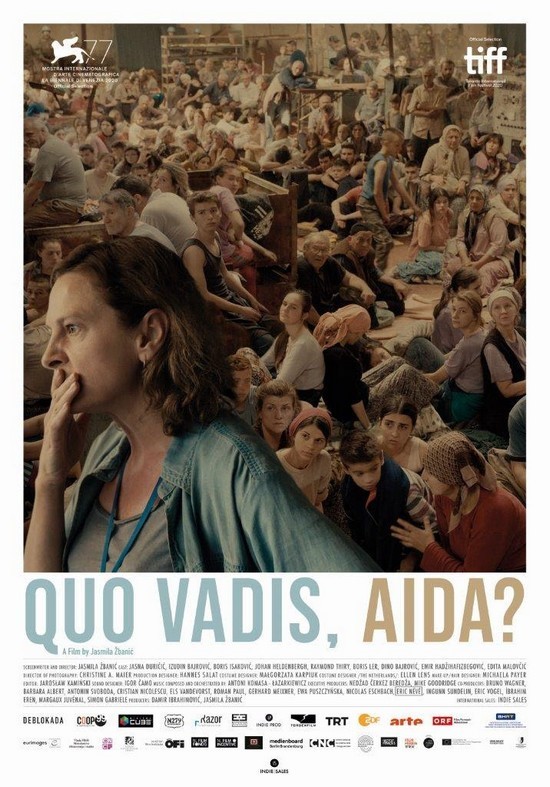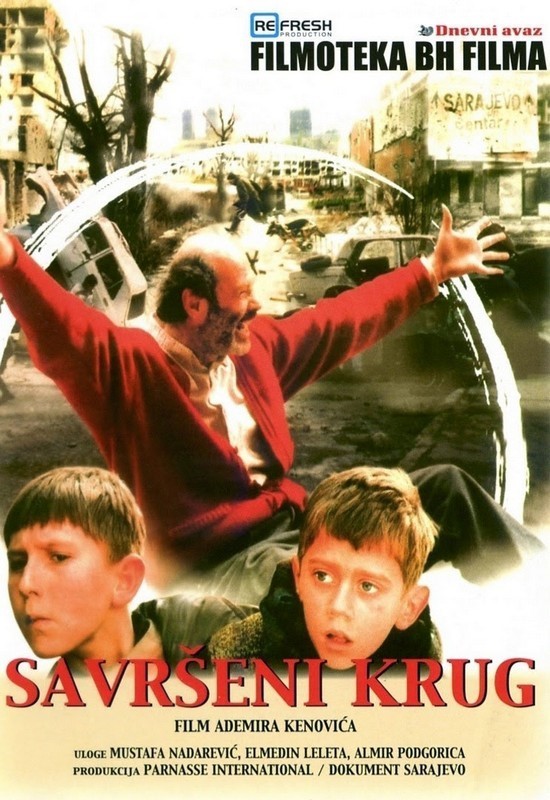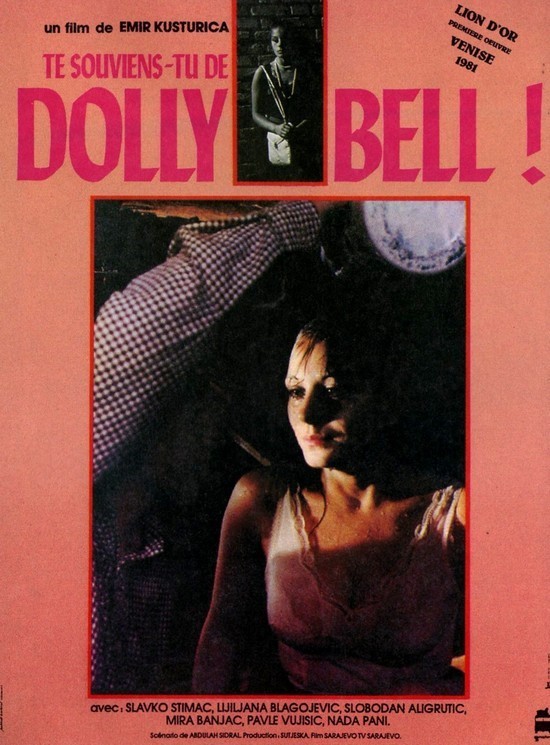Local viewers will get a glimpse into a diverse variety of old and modern
films reflecting changes in a society outside their own at the Bosnian and
Herzegovinian Film Days.
اضافة اعلان
Starting on
Tuesday and screening films till Thursday, the event is organized by the Royal
Film Commission and held in cooperation with the Embassy of Bosnia and
Herzegovina in Amman.
The four selected
films offer various examples from Bosnian and Herzegovinan cinema.
 Quo Vadis,
Aida by Jasmila Žbanić
Quo Vadis,
Aida by Jasmila Žbanić
Set in 1995 Bosnia, after the Serbs captured the town of Srebrenica,
thousands of civilians sought shelter in the UN camp and were facing total
confusion.
The film follows
Aida, an interpreter for the blue helmets, who is willing to do everything to
protect her family.
Director Jasmila
Žanić, known for her Golden Bear awarded film at the Berlin Film Festival
“Grbavica (Saravejo mon amour)”, takes viewers back to Bosnia and Herzegovina.
“Quo Vadis, Aida?” looks back at the impact of the Srebrenica capture during
the 1990s war in the Balkans and its direct consequences on the local
population.
Inspired by real
events, Žbanić presented a brilliant story both visually and in writing.
Through a biopic of a character developing in a very specific context, viewers
could see and identify Aida’s involvement as a spectator with no dilution. The
narrative is maintained, and the tension is ever-growing, even for those
already aware of the overall outcome.
From start to end,
nothing is spared. The viewer is immersed in action and the rare moments of
respite are precious. Using an precise rhythm, the narration is perfectly
mastered as it plunges viewers uncompromisingly into the complete chaos of the
military situation without ever becoming too confusing.
The viewer will
remain glued to their seat, wondering if Aida will succeed in saving her family
and, if she does, how?
The actors’
interpretation of their characters is excellent. Jasna Ðuričić, as the lead
Aida, is one example, but secondary characters, in particular Johan Heldenbergh
as Colonel Thom Karremans, impress viewers.
In the end, “ Quo
Vadis, Aida? “ is a film that successfully and intelligently revisits a
difficult period. The personal angle on the historical event allowed it to
deliver a bigger and more resonating impact to audiences.
The film was
presented at the Venice Film Festival and awarded the Crystal Arrow for best
film at the Arcs Film Festival. In 2020, the film received the Gouna Star for
Best Film at El Gouna Film Festival and the Best Director award.
 The Son by
Ines Tanović’s
The Son by
Ines Tanović’s
In her second feature film, Bosnian director and screenwriter Ines
Tanović went with a simple title, “The Son”.
Arman, the film’s
18-year-old protagonist, is in a period of self-discovery — this largely
includes the fact that he has to accept that he is adopted and that his birth
mother does not want to have contact with him.
If Tanović’s film
Our Everyday Life was about a middle-class family from Sarajevo, the focus of
The Son seeks to continue the narrative through the perspective of two
teenagers, where the elder is adopted. And as the adopted son makes that
realization, he gets into various difficult situations and put’s the whole
family in the situation with him. Interestingly, the director said that she
perceives all her films so far as stories of the same family.
Dino Bajrović
played Arman, but the film also features Uliks Fehmiu, Emir Hadžihafizbegović,
and Jasna Ornela Bery, who we already saw in Ines Tanović’s debut. Slovenian
actor Jernej Kogovšek also appears in a supporting role this time.
The Son deals with
family relationships and growing up in contemporary Sarajevo, still marked by
the scars of the Yugoslav war. The film brings to the forefront rifts between
generations. The director is mainly interested in the relatively well-off
middle class, which tries to provide its children with much more than they can
afford.
The film is shot
in moderately long frames, and Mitja Ličen did the cinematography. Still, the
viewer is deliberately kept at a distance from the main character and his
actions.
Two driving frames
capture viewers, the first in a taxi ride to the airport, with an insecure
Arman looking for confirmation of his existence somewhere outside his realm and
being unable to find it. The second is him already driving his car as he takes
matters into his own hands and accepts his situation — at least, that is how it
seems from his now brighter outlook.
The Perfect
Circle by Ademir Kenovic
The film follows the story of Hamza, a poet living in Sarajevo with his
family, as the siege of the city rages on. After sending his wife Gospodja and
daughter Miranda to Croatia for safety, he discovers two orphans, Adis and
Kerim. Hamza then decides to take them into his home.
Despite Sarajevo
living under an uninterrupted rain of bullets, the war in ex-Yugoslavia is not
the film’s theme, as there is no definite enemy. Viewers do not know who is
shooting, but sometimes a white UN tank can be seen patrolling the area
uselessly.
Director Ademir
Kenovic is only interested in the daily lives of his protagonists and the small
community surrounding them in The Perfect Circle. In the film, this city of
ruins where residents cannot run errands without running to avoid snipers,
things as basic as eating and sleeping turn into ordeals. But laughing,
singing, forming strong friendships, and discovering love, suddenly became of
enormous importance.
Despite the
struggles, The Perfect Circle is presented like a slow poem punctuated by the
melancholic verses of Abdullah Sidran. Politics are absent in the film, and the
staging is dry and posed, emphasizing the centrality of the search for meaning
in the midst of the absurdity of war.
Some will find
that this philosophical approach adds great depth to the film. Others will
consider this wisdom a hindrance. But even so, the film challenges viewers.
 Do You
Remember Dolly Bell? By Emir Kusturica
Do You
Remember Dolly Bell? By Emir Kusturica
In Sarajevo during the ‘60s, Dino, a young teenager from the dreary
suburbs, brightens up his life with evenings at the cinema. This reveals to him
a Western world full of temptations that help him forget everything else. And
when Dolly Bell, a prostitute, is introduced, emotions are explored.
Emir Kusturica
based the film on one of the families in Sarajevo, whose members encountered a
strange experience. When a girl, a stripper, is left behind with Dino, her
entrance creates an imbalance in Dino’s life, moving him from adolescence to
adulthood.
The film navigates
the influence of communism on Sarajevo societies and the role of indulging in
pleasures and desires in these societies. It also offers a view on the loss of
so-called morality.
Do You Remember
Dolly Bell? she is a woeful presentation of humanity and innocent feelings that
become a memory.
The film screenings will
be held at the Outdoor Amphitheater at RFC.
Read more Reviews
Jordan News



